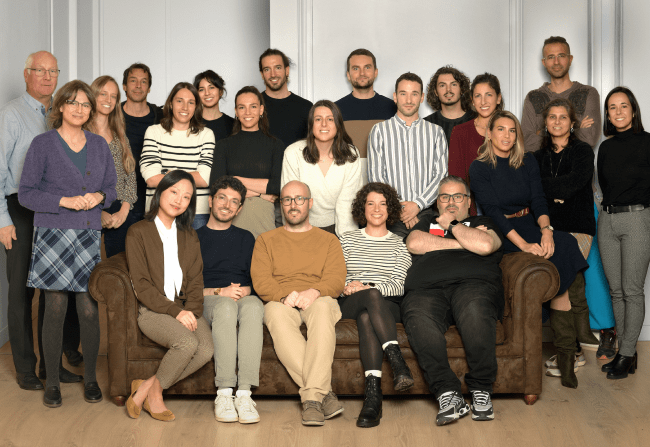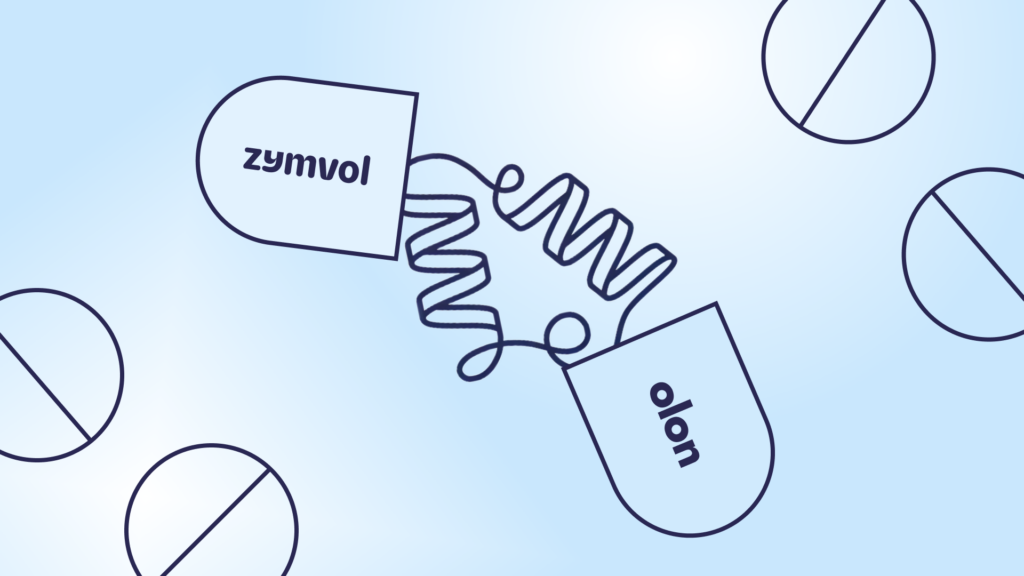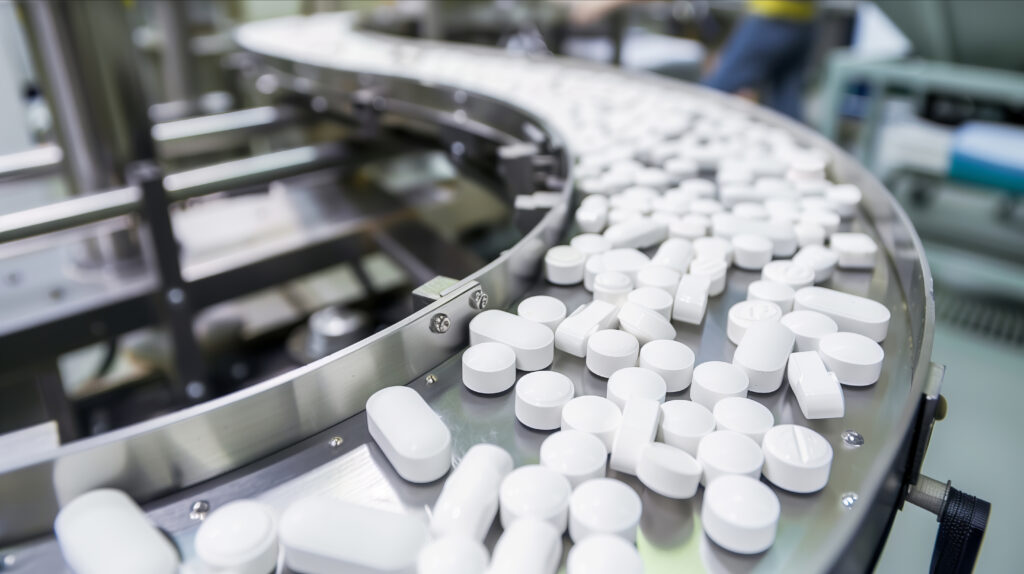February 20, 2025
ZYMVOL raises €3 million in seed funding

When we first launched ZYMVOL in 2017, we knew we wanted to make better performing enzymes available to everyone.
But a vision alone isn’t enough—you need to find people who believe in it as strongly as you do.
Today we're thrilled to announce that our company has closed a new investment round of 3 million euros, led by VC firms Faber Ventures (lead investor), Elaia Partners (existing pre-seed investor), and Übermorgen Ventures.
Thanks to this seed investment, our company is now ready for new and exciting challenges:
- From enhancing our experimental lab.
- Expanding our proprietary computational technology.
- Increasing our sales and marketing team to reach new clients.
- To bringing our first custom-made enzyme kits to the market.
"Enzymes power innovation across industries, from sustainable manufacturing to pharmaceutical breakthroughs. However, biocatalysis presents significant challenges —enzyme discovery and engineering remain complex, costly, and time-consuming. Zymvol’s advanced computational solutions go beyond improving efficiency; they strengthen industrial resilience, drive sustainable innovation, and shape the future of global production.”
Sofia Santos, Partner at Faber
“Over the past few years, Zymvol has revolutionised the way enzymes are discovered and engineered. Zymvol now outperforms alternative solutions across all key factors, including speed of development, specificity and efficiency. We are pleased to continue supporting the company as it expands its portfolio of enzymes and scales operations internationally.”
Sébastien Lefebvre, Partner at Elaia
As leaders in computational enzyme discovery and design, we partner with R&D teams from some of the world’s largest firms to transform their production processes—boosting innovation and reducing environmental impact—through tailored enzymatic solutions.
“Enzymes are tiny chemical factories that are responsible for all transformations in Nature. We're harnessing their power to deliver clean, sustainable chemical processes to companies striving to improve their products and operations—paving the way for a better world”.
Maria Fátima Lucas, CEO at Zymvol.
Over the years, ZYMVOL has successfully completed more than 100 projects spanning diverse sectors, primarily in the pharmaceutical and chemical industries, collaborating with global clients such as Axplora, Medichem, and Sanofi.
Simulating millions of experiments In Silico
Enzymes are biocatalysts, proteins naturally found in living organisms responsible for “catalyzing” (accelerating) millions of chemical reactions. For decades, various industries have used them to improve the properties of their products (e.g. detergents with better stain-removal power, lactose-free milk, etc), as well as to substitute polluting, traditional catalysts.
Despite an enzyme’s ability to be applied in industrial chemical processes, it must first be engineered to withstand the factory environment, as significant changes in pressure and temperature can render them useless. But traditional enzyme engineering often requires months or years of lab work, while relying on massive “trial and error” experiments, making it a rather unpredictable and expensive process.
ZYMVOL’s technology revolutionizes this process. We use highly realistic computer simulations that mimic the conditions of experiments with over 90% accuracy. This approach drastically reduces development time and cost, allowing only the most promising variants to proceed to lab testing.
Furthermore, our company is also able to discover enzymes for a target reaction without prior data. This means opening the door to potential projects that know which target chemical reaction they want to achieve, but don’t know there might be an enzyme for it.
The future is made of enzymes
If there’s one thing that enzymes are known for is their environmental friendliness. Applying a biocatalyst to an industrial process can eliminate -or decrease significantly- the need for toxic chemicals. And since it can operate at mild conditions, they can work at lower temperatures and pressure, which leads to energy savings.
“Many companies are facing pressure to maintain competitiveness in their respective fields, as well as adapt their processes to meet regulatory frameworks regarding sustainable manufacturing. The good thing about biocatalysts? They can provide a solution to all of these challenges”.
Maria Fátima Lucas, CEO at Zymvol
In fact, this trend doesn’t seem to slow down any time soon. According to MarketsandMarkets, the global enzyme market was estimated at USD 14B in 2024 and is projected to reach USD 20.4B by 2029 (7.8% CAGR).
You might be interested in
Start your Evolution
Create new products and processes, adapt existing ones or develop completely new biochemistry. Zymvol is here to guide you in any stage of your journey.
Go to solutions





